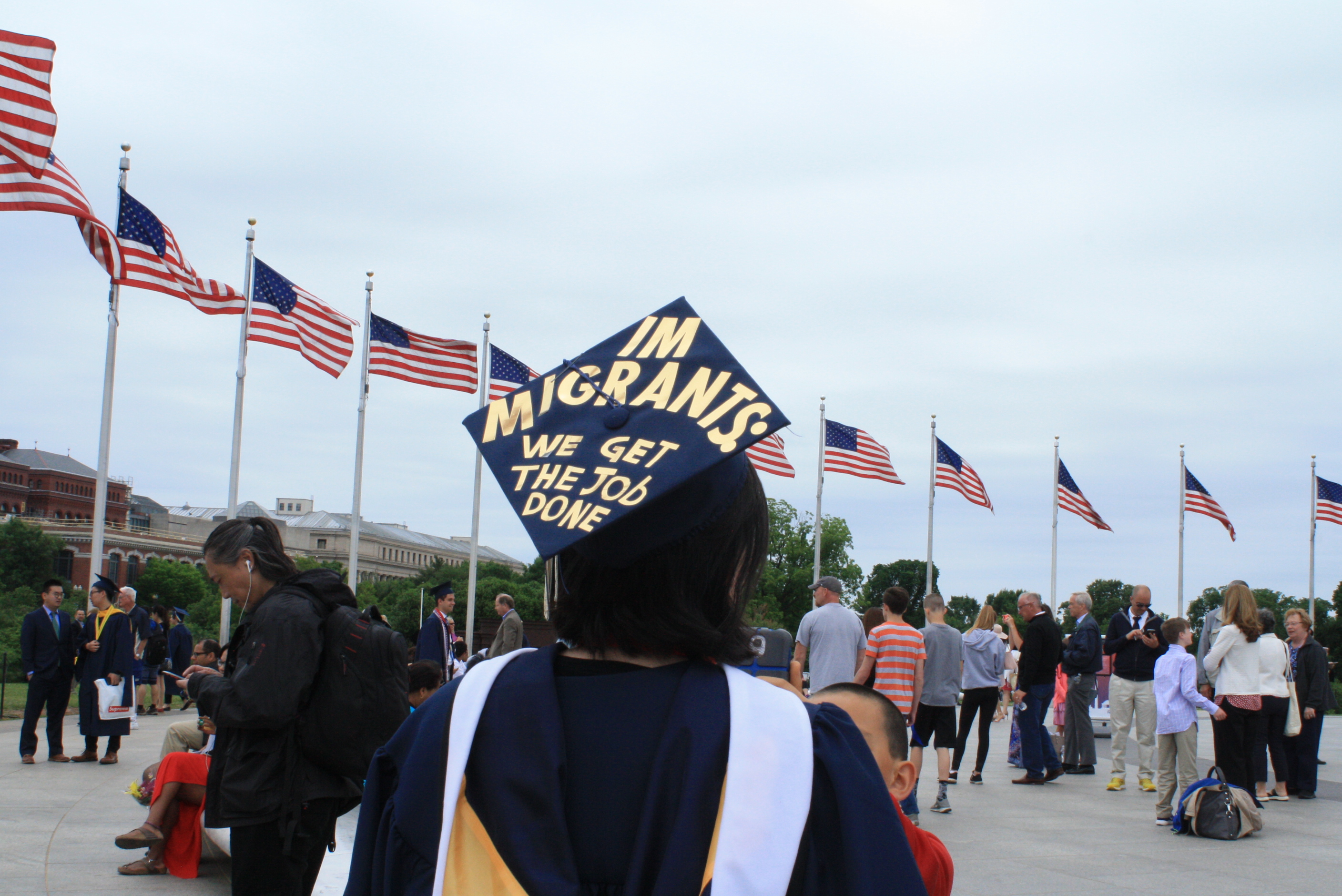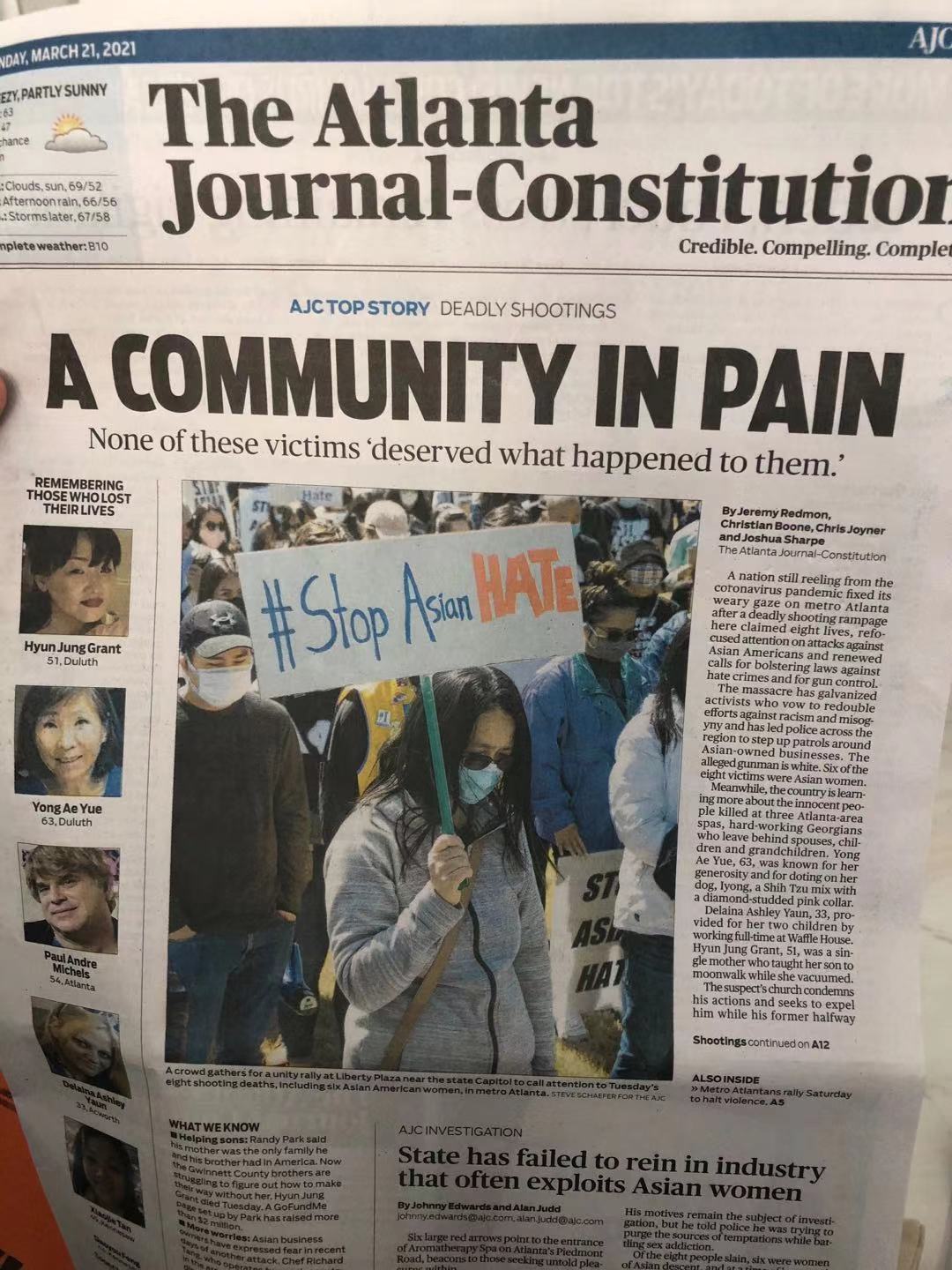
Yesterday I saw a video being circulated online, and it made me feel physically sick. In the video, a 65-year-old Asian woman is walking outside a luxury apartment building in Manhattan when a man attacked her, pushed her to the ground, kicked her head and chest when she lay there. In the surveillance video, you can see three men in the building, just on the other side of the glass doors, watching silently. After the attacker leaves, one of the men — the doorman — walks over and closes the half-open door.
It’s that act that feels almost as heinous as the attack: closing the door in the woman’s face, while she is lying there, beaten and bloody. It’s so callous that it feels unreal, sociopathic. It also feels like an apt metaphor for how the Asian American community has been treated by the rest of America for the past year, the past hundred years. Treaded upon, belittled, ignored.
I usually try not to feel emotions when I read about these attacks, as a self-protection mechanism. But my mind wandered and I imagined that the victim was my mother. It so easily could have been. As soon as I pictured her lying on the ground, hurt, I wanted to throw up.
For the last year, my parents have been leading a hermit-like existence in their house. They only leave to buy groceries. They take short walks in their immediate neighborhood. The isolation has affected them psychologically. I suggested that they drive to a state park to get some air, or perhaps a nice vacation by the beach, but they said it wasn’t safe. I hadn’t understood; I thought they were being overly cautious, to the point of paranoia.
Then a few weeks ago, there was a mass shooting near their home in Atlanta. Six Asian women were killed.
There was a march to protest anti-Asian hate. My mother went with her homemade sign. It was the first time she’d left the house for a non-essential reason since the pandemic began. The next day, something remarkable happened: her photo was on the front cover of Atlanta’s largest newspaper.

We talked on the phone. “It must feel very strange to see your photo next to these women who have been killed, who probably lived near you, went to the same grocery stores as you, were in the same community as you,” I told her. “It’s such a privilege to be alive right now.”
“I know,” she said, and started to cry.
This may be a strange thing to say, but I think crying is a very helpful thing. Crying is a sign of deep pain. And I want other people to be confronted with our pain, to acknowledge it, to sit in the discomfort that it may bring them.
That’s why I would recommend listening to this NPR interview with writer R.O. Kwon. She is so open and so vulnerable in this interview. And her ability to be vulnerable is her strength.
So horrendous what had happend. What happend to being a normal nice and caring human being? As an outsider, it felt like the narrative was headed this way no thanks to the previous president refusing to call the virus its actual scientific name and instead, turned it to something racial. As an Asian Australia, there were some hate crimes here but not direct violence which was upsetting and so disappointing. We are known to be pretty racist despite being so multicultural though.
LikeLiked by 1 person
Thank you. A year of throwing around words like “kung flu” and “China virus, we reap what we sow….
LikeLiked by 1 person